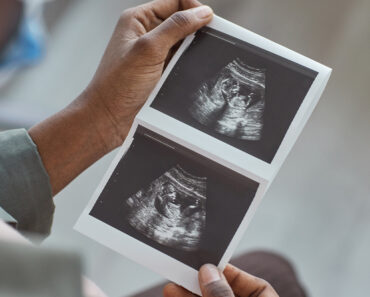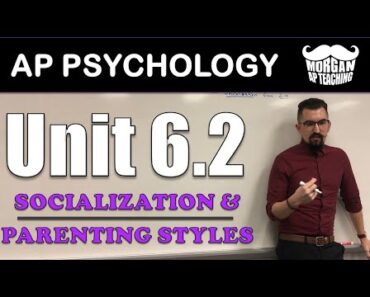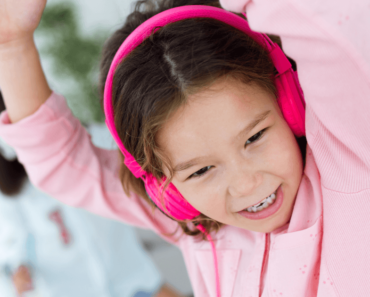Canadian schools are reopening in September, but is anyone in charge really thinking about the well-being of the children?
As September approaches and schools prepare to reopen, there are concerns for children, including the risk they might spread COVID-19, their mental health, abuse in the home and access to technology.
These concerns largely focus on children’s psycho-social development, while protecting children and families from COVID-19 has taken a back seat.
Consequently, children have been excluded from conversations as experts make their decisions for them.
Human beings or human ‘becomings?’
While adults are seen as fully independent human beings, children are seen as incomplete and lacking control, knowledge and experience. Jens Qvortrup, a Norwegian sociologist who specializes in childhood, terms this distinction the difference between human beings and “becomings.”
The majority of society’s understanding and treatment of children has to do with who they will become, which in turn ignores who the child is today.
Historically, children have had fewer rights than adults because of belief that children are incapable and inexperienced.
Decisions made in a child’s “best interest” often have to do with producing strong outcomes for their future and for society. But the consequences can be dire when the decisions made for children fail to account for their current well-being or opinions.
My preliminary research examines how policies that focus on children at the same time constrain their rights and ignore their experiences.
In June, the Ontario government released its plan for reopening schools in September. It was updated in late July to explain that the reopenings would involve a blend of online and in-person learning.
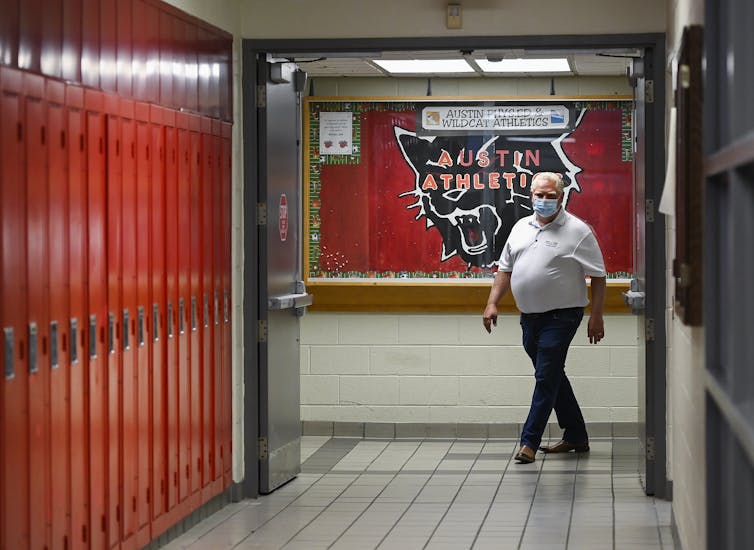
THE CANADIAN PRESS/Nathan Denette
The initial plan is focused on concerns for children’s futures: that they’ll fall behind academically or face consequences at home that negatively impact their development, such as abuse or a lack of socialization.
Focused on outcomes
The strategy therefore focuses largely on outcomes since it prioritizes a continuous monitoring and examination of students to ensure that they are performing at the proper level. Even though increased anxiety, grief and time off school might have negatively affected a child’s performance, the plan focuses more on meeting curriculum goals than overall well-being.
Curriculum goals are a perfect example of outcome-based thinking, as students will be placed under potentially stressful examinations that are based on their performance of skills that prepare them for the workplace instead of meeting children where they are and ensuring that they’re safe and healthy.
The concern for children’s academic performance over their health and fears places children and their families at risk for both COVID-19 infection and mental health issues.
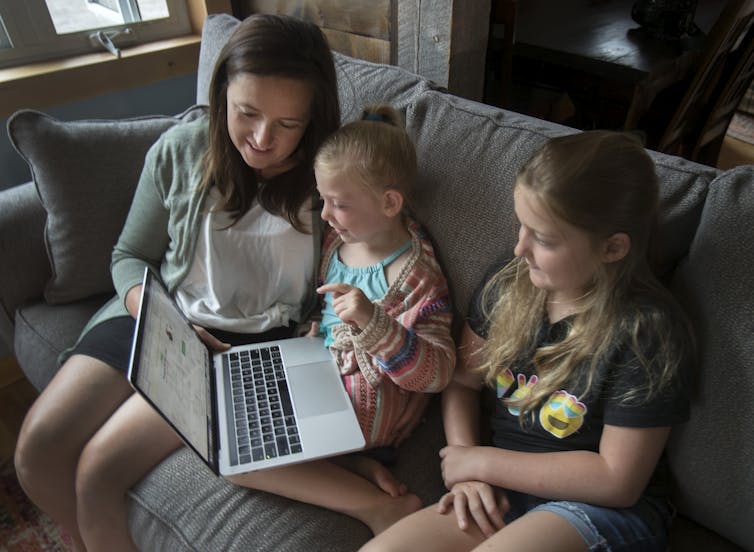
THE CANADIAN PRESS/Fred Thornhill
Return-to-school discussions not only address children’s future work-related abilities, but are also focused on getting parents back to work as soon as possible. Having children at home, particularly young children, might prevent parents from working. With recent outbreaks of COVID-19 in daycares, traditional forms of child care may not be an option.
Getting parents back into the economy therefore is a top priority, and school provides a form of free child care. That means economic stability is apparently the primary reason for returning to school, not concerns about children. Financial gain is taking centre stage over children’s care, their right to safety and security, and potentially, their lives.
Children left out of decisions
Throughout the reopening plans in Ontario, the government has consistently said parents can choose if their child will return to class. But because children are seen as less capable than adults, they may have largely been left out of these decisions.
However, under the United Nations Convention on the Rights of the Child, children have a right to information and expression about matters that concern them. Children have already expressed concerns about the virus, but may be forced to face COVID-19 head-on due to economic circumstances beyond their control.
In the case of parents who cannot elect to stay home from work, families are forced to choose between placing themselves at risk of COVID-19 or losing out on wages. Considering the Canadian Emergency Relief Benefit is not available for those who can work but choose not to, low-income families may be forced to choose between sickness and destitution. Parents must make decisions that do not include their child’s opinions or best interests.
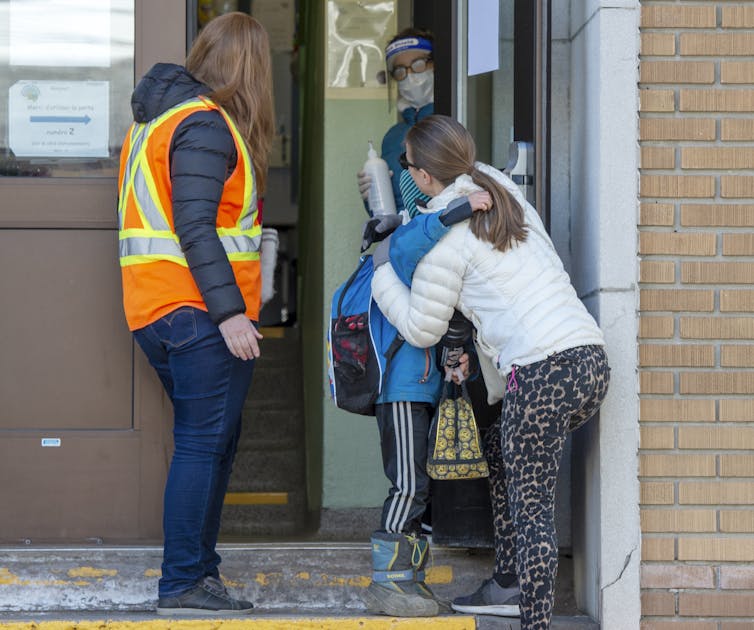
THE CANADIAN PRESS/Ryan Remiorz
All of these underlying motivations for reopening schools deny children their right to participate in matters that concern them and their rights to safety and security, as outlined by the UN convention.
Considering that children are capable of learning and contributing to the world around them, they should be given the opportunity to digest information regarding COVID-19 and weigh in on options for their education.
Any decision that places a child’s physical and mental health at severe risk should not be taken lightly, and policy-makers and parents alike should consider the voices of those most affected—the children themselves.![]()
Sydney Chapados is a doctoral fellow in sociology at Carleton University.
This article is republished from The Conversation under a Creative Commons license. Read the original article.

